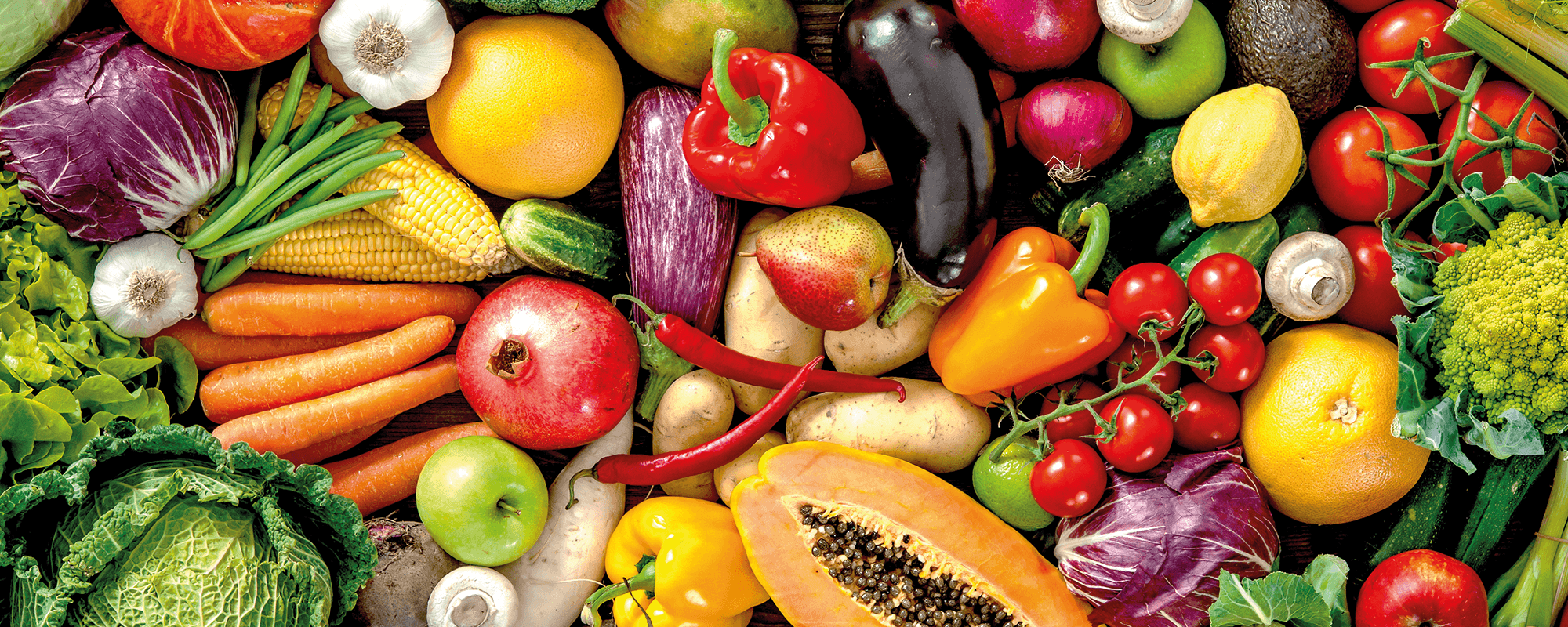I <3 potato
Plant-based diets are going mainstream all over the world. Cassi Camilleri sheds light on the local vegan movement and how reducing our meat consumption can benefit us all.
Some label the rise of plant-based living as evidence of ‘trend culture’. And they’re not all wrong. Traditional media bombards us with countless headlines on the topic’s pros and cons. Hard-hitting advocacy films like Cowspiracy and Forks over Knives expose the horrors of the meat industry. Social media influencers share their experiences with the diet, turning it into lifestyle content. And now the market is following suit with vegan and veggie lines and options popping up everywhere.
In 2016, an Ipsos MORI survey for the Vegan Society identified that 3.25% of adults in the UK never eat meat in any form as part of their diet, equating to roughly 540,000 people. Vegan January—commonly known as Veganuary—is growing in popularity. This year, a record-breaking 250,310 people from 190 countries registered for the month-long vegan pledge. And Malta is no exception.
While the official number of people following a plant-based or vegan diet are unavailable, interest is clear. Facebook pages Vegan Malta and Vegan Malta Eats have a combined following of over 16,500 people.

The reasons behind people’s decision to take up veganism are various, however three main motivators keep being cited: health benefits, ethics, and environmental concerns. For vegan business woman Rebecca Camilleri the process was natural and gradual. ‘There was no real intention behind it for me. But after a couple of months of following this diet, I noticed that my energy levels were better than before, and this encouraged me to learn more on how I needed to eat in order to nourish my body with the right nutrients to sustain my active lifestyle.’
Researcher and nutritionist Prof. Suzanne Piscopo (Department of Health, Physical Education, and Consumer Studies, University of Malta) confirms that ‘moving towards a primarily plant-based diet is recommended by organisations such as the World Health Organization and the World Cancer Research Fund, for health and climate change reasons.’
Oxford academic Dr Marco Springmann has attempted to model what a vegan planet would look like, and the results are staggering. According to his calculations, should the world’s population switch to a vegan diet by the year 2050, the global economy would save $1.1 trillion in healthcare costs. We would also save $0.5 trillion in environmental costs, all while slashing greenhouse gas emissions by two-thirds.
Despite all this, veganism has earned itself quite a few enemies along the way. The vitriol thrown back and forth across both camps is shocking. Relatively recently, UK supermarket chain Waitrose came under scrutiny after magazine editor William Sitwell responded to plant-based food article ideas from writer Selene Nelson with a dark counter offer—a series on ‘killing vegans’. Sitwell was since forced to resign. Nelson posited that the hostility stems from ‘a refusal to recognise the suffering of animals. Mocking vegans is easier than listening to them.’

Abigail Higgins from American news and opinion website Vox agrees that guilt plays a role in the hatred aimed towards veganism, but also proposes that the whole movement ‘represents a threat to the status quo, and cultural changes make people anxious.’ This notion is based on research on intergroup threats and attitudes by US researchers Walter G. Stephan and Cookie White Stephan.
It however remains a reality that some of the loudest voices in veganism in the past have been militant. Some have invoked hatred and threats towards those that they perceive not to be sufficiently aggressive in promoting the cause. Piscopo calls for a respectful discussion.
‘Food is not only about sustenance and pleasure, but has symbolic, emotional, and identity value. Take meat for example. Some associate it with masculinity and virility. Others link it to food security as meat was a food which was scarce during their childhood. Some others equate it with conviviality as meat dishes are often consumed during happy family occasions. What is important is that we do not try to impose our beliefs, thoughts, and lifestyle on anyone.’
The way forward is a ‘live and let live’ approach, according to Rebecca Galea. When her journey started she had people ‘staring strangely at [her] food’. Even her family didn’t take her seriously. ‘They were very sceptical as their knowledge on veganism was very limited at the time,’ she remembers. Now, seeing the effect the switch has made to Rebecca’s life, her positive choices are naturally impacting theirs. ‘Everyone is free to make their choice,’ she says. Embodying the philosophy of leading by example, Rebecca has even set up her own business making delicious vegan nut butters, spreads, and more, to great success. ‘The more vegan options are available [in Malta], the more people will be attracted to learning and accepting the benefits of veganism. This might also lead to them following a vegan lifestyle!’
With that, and sharing valid, up-to-date research-based information, as Piscopo suggests, it seems there is no stopping this ‘trend’. And who would want to when veganism can lead to a lower carbon footprint and better health for everyone?
Art for the mind
How can we use art to address mental health stigma? Dr Alexei Sammut writes about the art book Living with Mental Illness and the accompanying exhibition, which are his contributions to strengthen the discourse on mental health in Malta.
Declining mental health is a global burden. Anxiety, depression, and substance abuse are on the increase. Current estimates from the World Health Organization report that one in every four of us will experience some form of mental health challenge during their lifetime. By 2020, these figures are expected to double. And while support services do exist, their accessibility can be difficult.
There is no one explanation for this. The issue is complex and multifaceted. A lack of information on such services is a major contributing factor, however, stigma continues to be the main reason people refrain from seeking support and advice. Just a decade ago, discussing depression, eating disorders, self-harm, and suicide in Maltese public fora was unimaginable. And while things have improved—social media provides plenty of evidence—we cannot become complacent.
As part of my PhD, I looked into the attitudes of Maltese nurses and midwives towards mental illness. As people working in caring professions within medical settings, they are on the front lines of community health, seeing people from all walks of life, day in day out.
What I found was that while local nurses and midwives hold a positive attitude towards individuals with a mental illness, continued education, public engagement, and mental health literacy promotion are imperative.
Nurses and midwives who followed specific mental health nursing training held the highest positive attitudinal scores. This finding highlights the important correlation between education and mental health literacy to the attitudes towards those with a mental health condition. Without adequate mental health literacy, stigmatising attitudes will prevail, and people will not receive the care they need.

With this knowledge in hand, I wanted to raise awareness around mental health. To do this, I combined my goal with my love for art, collaborating with local artist Anthony Calleja to explore the lived experiences of living with mental illness.
Calleja produced 18 works of art, all of them depicting mental illness based on first hand accounts from people living with the diseases. The idea was to increase awareness and generate discussion without the need for text. Visual art allows for nuanced personal interpretation, empowering the individual to reflect and absorb the messages within the art they are viewing. People use metaphors to relate to their life situations, especially when things become difficult to explain. Like metaphors, art can be used to express things that cannot be stated in words. Art can be a therapeutic medium that helps people reach out. But this was not all we planned to do with the initiative.
Calleja’s pieces were collocated into a book titled Living with Mental Illness. The publication was launched at an exhibition of the original works. On the night, I conducted a study through questionnaires investigating people’s own interpretations of the works and the emotions they conveyed.

Although data analysis is still at a preliminary stage, findings seem to agree with the national survey on health literacy carried out in 2014 by the Maltese National Statistics Office on behalf of the Office of the Commissioner of Mental Health. In 2014, research showed that 42.5% of the Maltese population have a problematic level of health literacy. This further highlights the importance of education and health promotion campaigns.
We’ve all heard someone around us say that mental health is as important as physical health, and we need to act on that adage. We cannot shy away from giving it the attention it deserves. Now is the time to speak out and collaborate as a collective. We need to listen closely to those among us who are struggling, especially to those who use our community’s mental health services. Only they can help us revamp and address the challenges that lie ahead.


